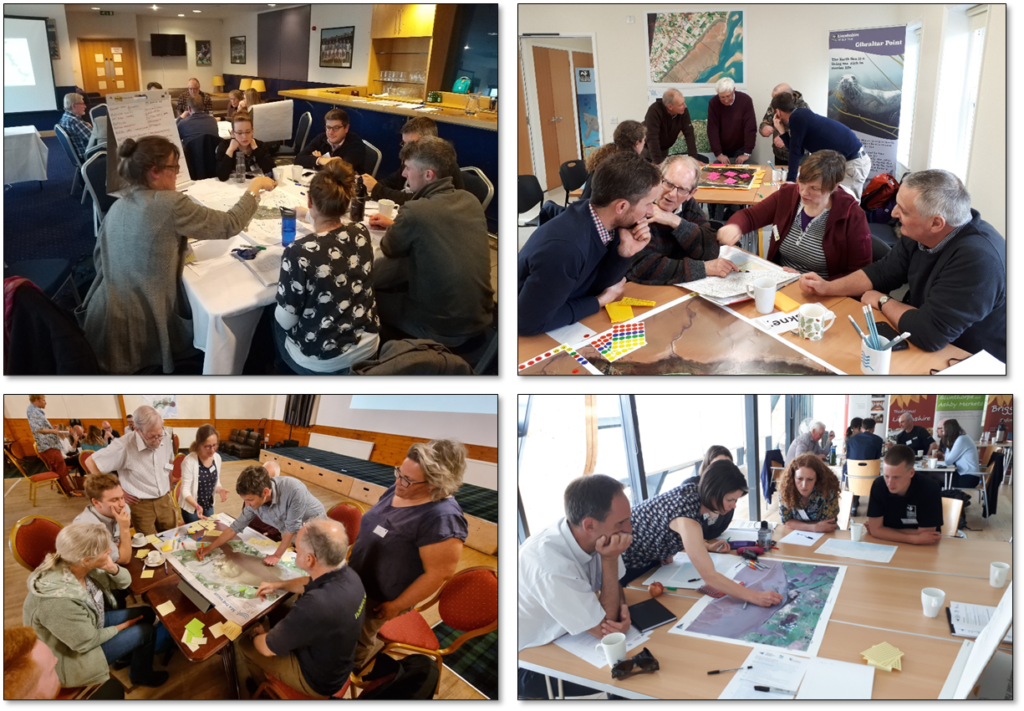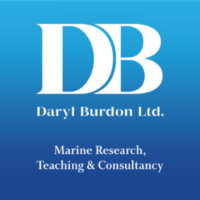
Participatory Mapping places people, communities and stakeholders at the centre of open deliberative processes that examine how and where ecosystem services and societal benefits can be realised. Participatory Mapping can be defined as the gathering and mapping of spatial and non-spatial information by diverse stakeholder groups to help communities learn, discuss, build consensus, identify trade-offs and make decisions about their natural resources. Participatory Mapping uses direct means of co-producing knowledge with stakeholders as legitimate active partners in the mapping process and facilitates the mapping of local activities, natural or anthropocentric features, benefits and social values.
This page provides updates on current and completed Participatory Mapping projects and shares publicly available outputs from these projects which have been undertaken by Daryl Burdon Ltd. and their Associates.
ONGOING PROJECTS
Participatory mapping activities within Sea The Value aim to:
• Explore the links between marine ecosystems (natural capital) and the wide range of benefits they provide, in the context of local communities.
• Explore the trade- offs between benefit provision under different management interventions and scenarios.
• Understand how communities can access, use and benefit from the natural capital and design future schemes that improve biodiversity and social welfare.
PARTICIPATORY MAPPING OUTPUTS
Burdon, D. & Potts, 2024. Cromarty Firth Workshop 3: Logic Chains. Report produced for the NERC/ESRC-funded Sea the Value Project, April 2024.
Burdon, D., Potts, T., Van Der Schatte Olivier, A. & Gormley, K., 2023. Cromarty Firth Workshop 2: Scenarios Assessments. Report produced for the NERC-funded Sea the Value Project.
Anbleyth-Evans, J., Burdon, D., Potts, T. & Van Der Schatte Olivier, A., 2023. Cromarty Firth Workshop 1: Identification and mapping of features and benefits. Report produced for the NERC-funded Sea the Value Project.
Burdon, D. & Potts, T., 2020. Participatory mapping of natural capital and benefits: method guidance document. Report to Marine Management Organisation and Suffolk Marine Pioneer Project by Daryl Burdon Ltd., Willerby, UK (Report No. DB LTD 007/2019c).
Burdon, D., Potts, T. & Barnard, S., 2020. Suffolk Marine Pioneer Natural Capital Logic Chains and Tool Development Workshop Report. Daryl Burdon Ltd., Willerby, UK. February 2020. (Report No. DB LTD 007/2019b).
Burdon, D., Potts, T. & Boyes, S.J., 2019. Suffolk Marine Pioneer Scenarios Assessments. Report to Suffolk County Council prepared by IECS, University of Hull, Hull, UK.
Burdon, D., Boyes, S.J., Potts, T. & Cosgrove, P., 2019. Suffolk Marine Pioneer Values and Priorities Workshop #2. Report to Suffolk County Council prepared by IECS, University of Hull, Hull, UK.
Burdon, D., Boyes, S.J., Potts, T. & Cosgrove, P., 2019. Suffolk Marine Pioneer Values and Priorities Workshop #1. Report to Suffolk County Council prepared by IECS, University of Hull, Hull, UK.
Burdon, D., 2018. Assessing the value of natural capital and ecosystem services in supporting economic growth and social well-being in and around the Humber Estuary: Workshop Report. Impact Acceleration Fund – Pilot 2017/18, University of Hull, UK.
Lew, S., Burdon, D. & Forster, R., 2018. Using satellite imagery to understand the benefits that marine nature reserves provide for people and society. NERC-funded Valuing Nature Placement Scheme 2017/18, Valuing Nature Programme, UK.
Potts, T., Shilland, R., Burdon, D. & Gormley, K., 2017. Navigating coastal change in the North East of Scotland: Expanding the role of participatory mapping and deliberation for the management of MPAs and coastal developments. Impact Knowledge Exchange and Commercialisation Award, University of Aberdeen, Scotland.
